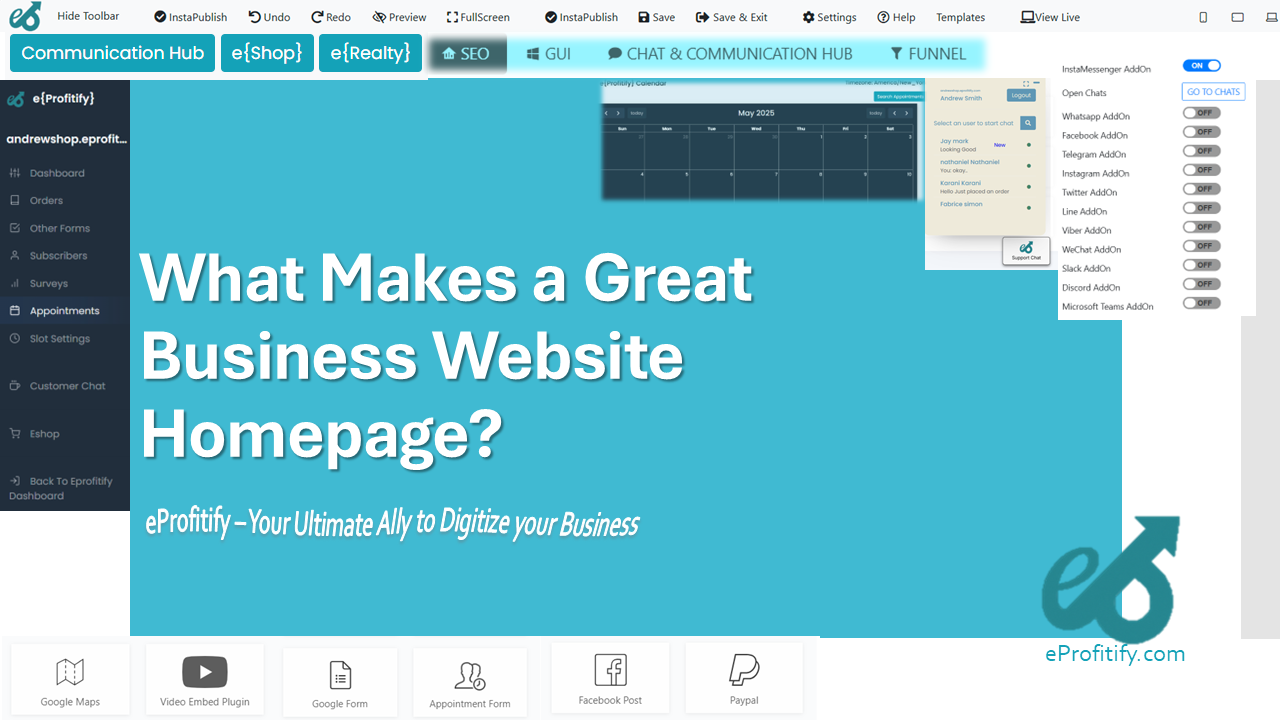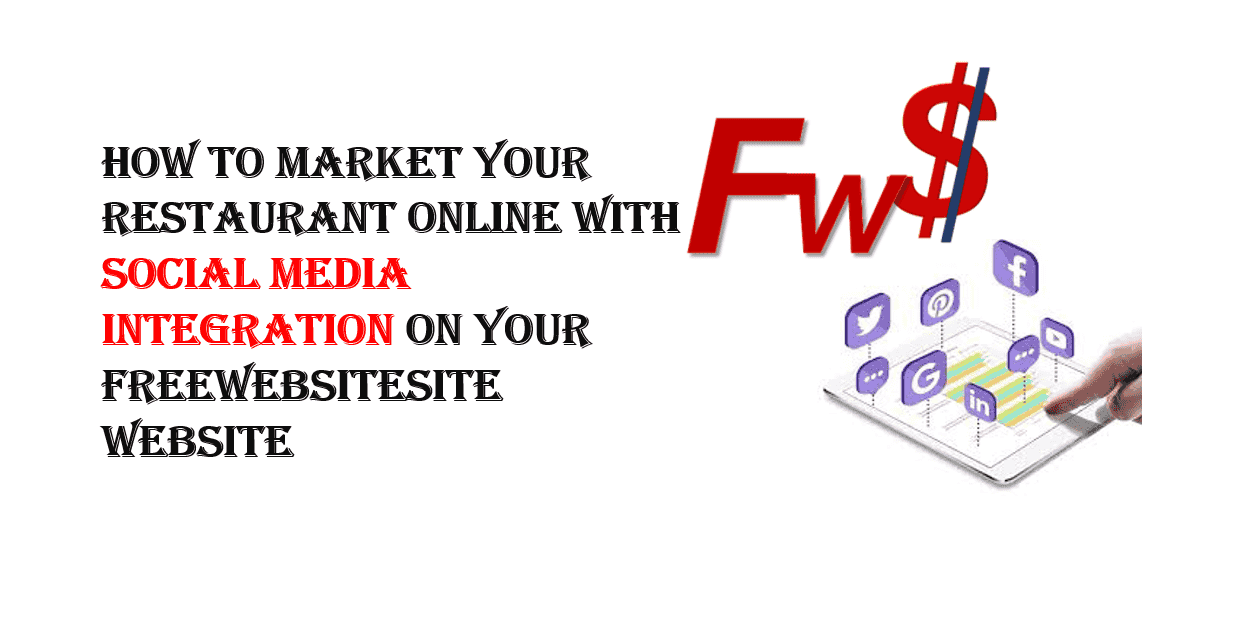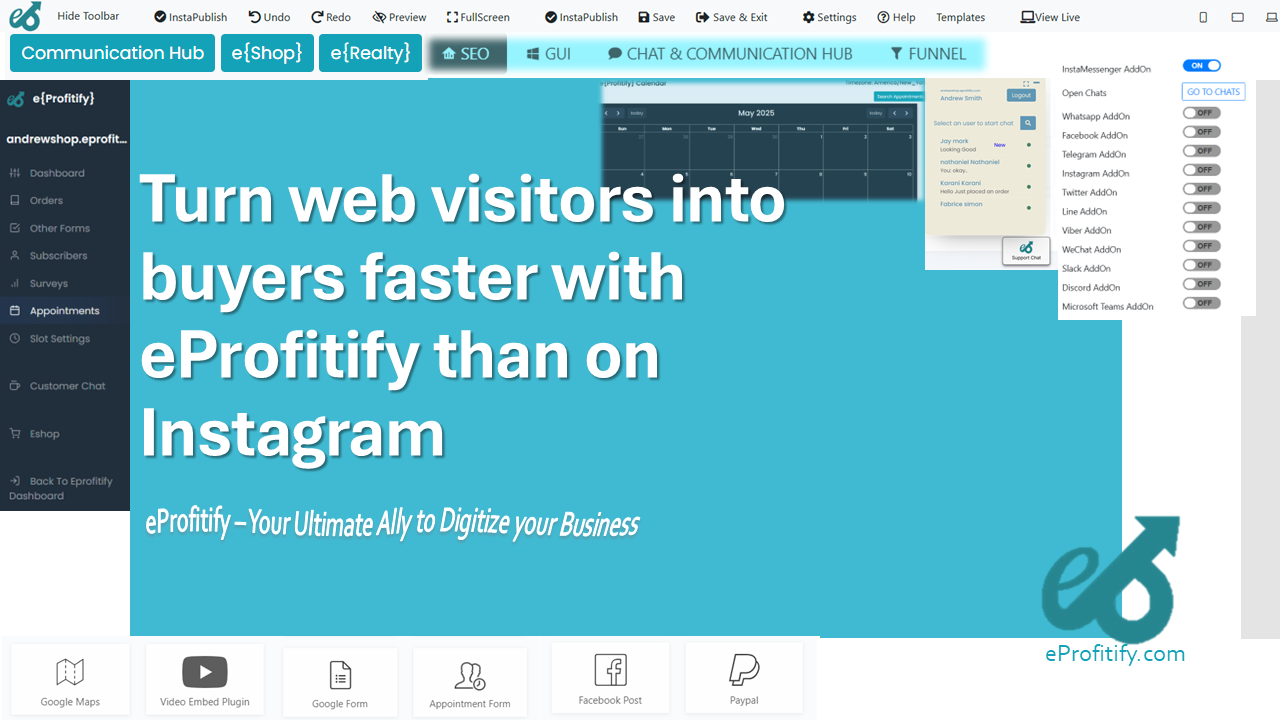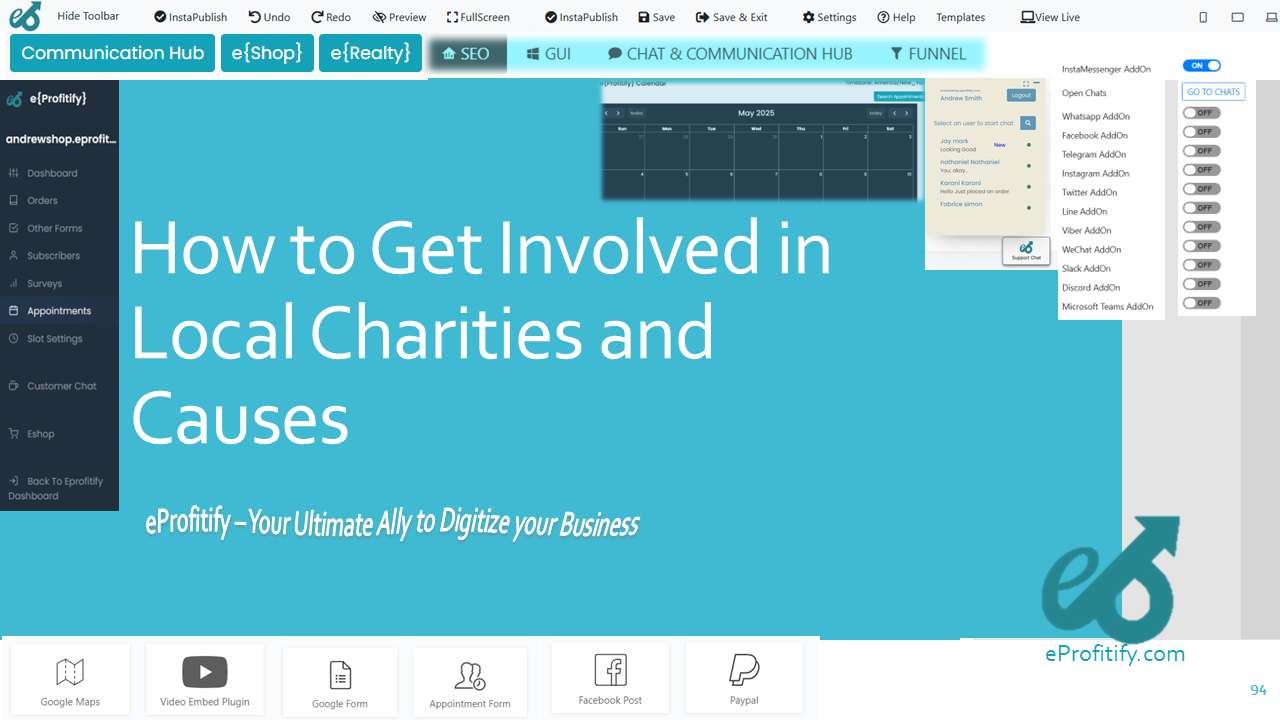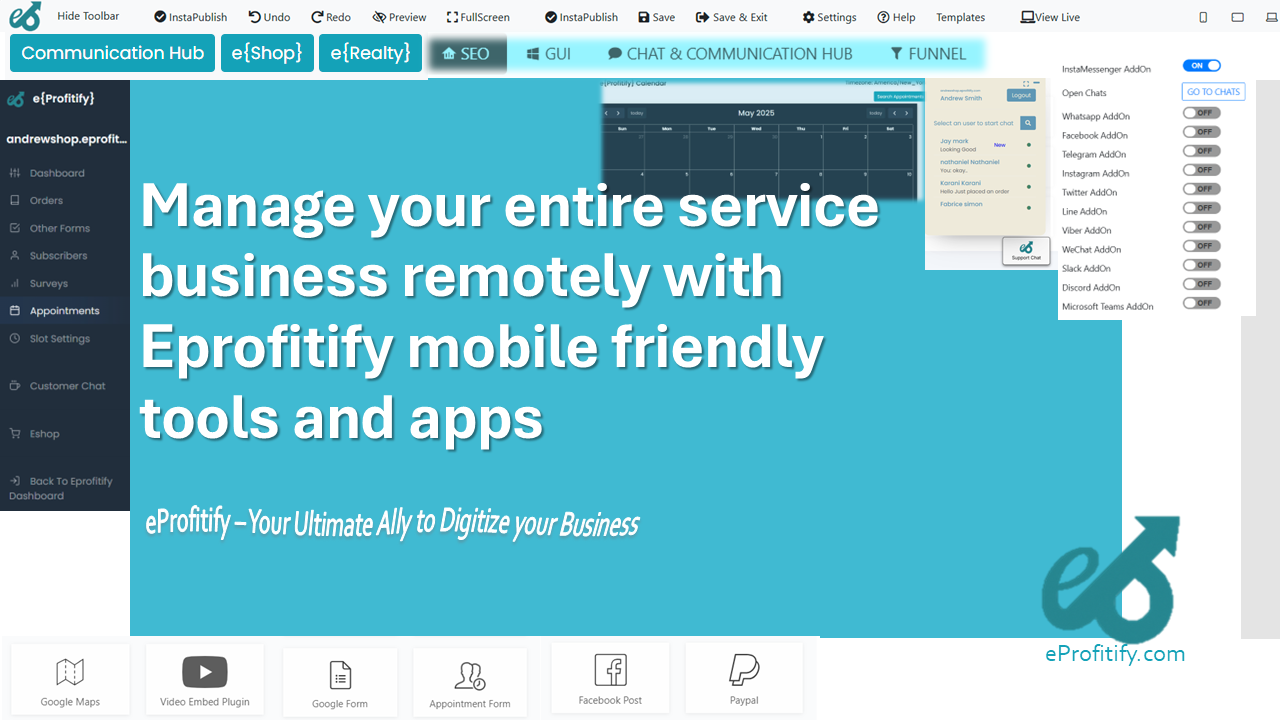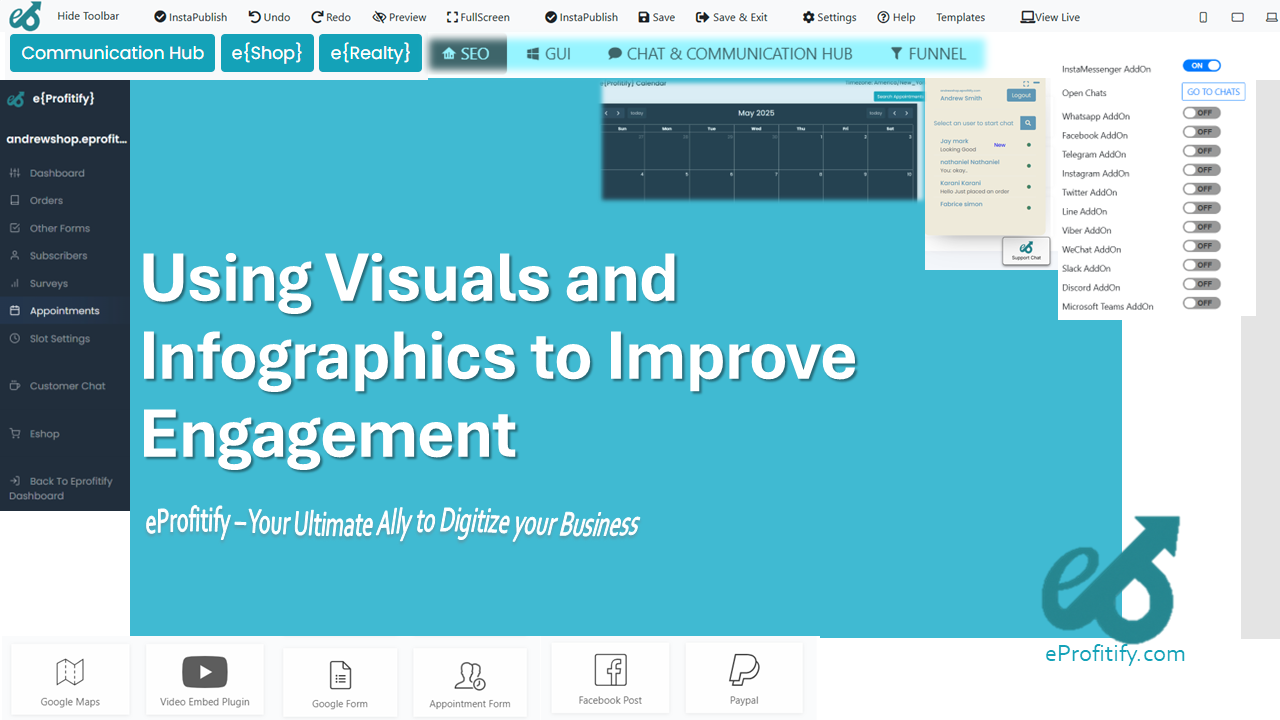How to Build Custom Sales Contracts Using eDocuflow
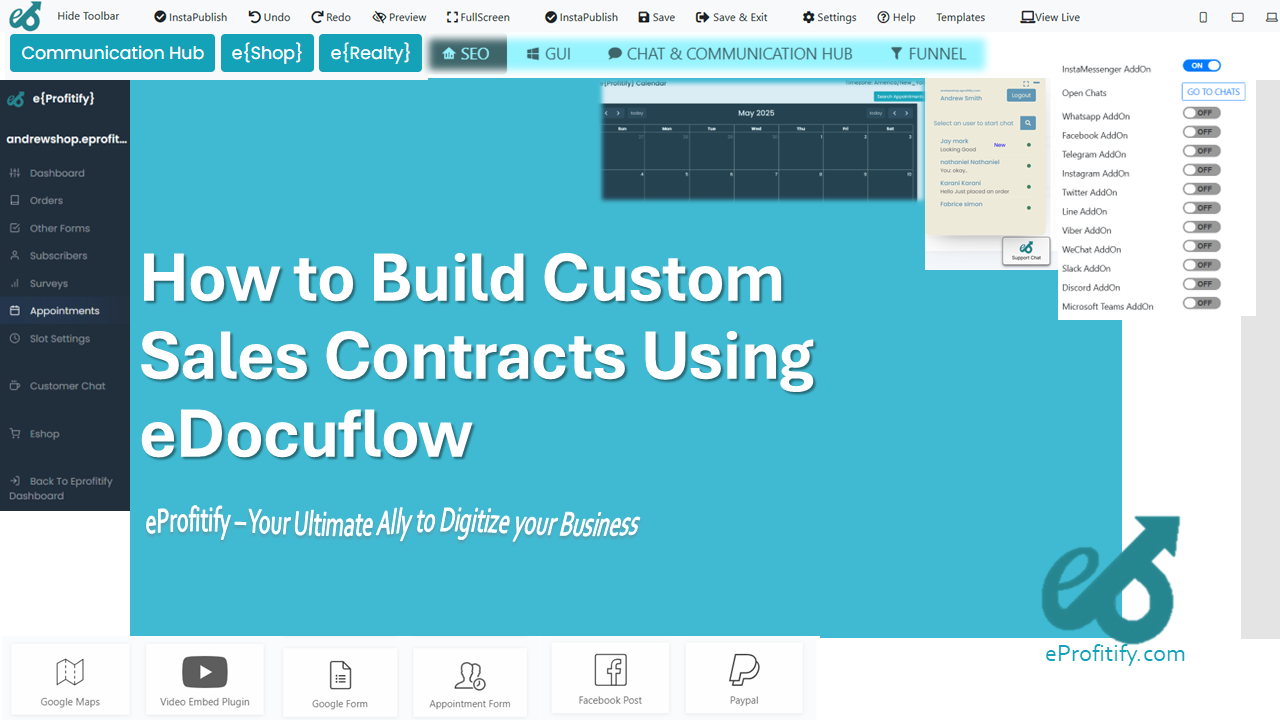
Schedule a LIVE Zoom call with an eProfitify Expert.
How to Build Custom Sales Contracts Using eDocuflow
In today’s fast-paced business environment, custom sales contracts are critical for minimizing risks, ensuring legal compliance, and fostering trust between parties. Manual contract creation, however, is time-consuming and prone to errors. eDocuflow, a dynamic document automation platform, streamlines this process by enabling businesses to create tailored, legally sound agreements efficiently. Paired with eProfitify—a leading website publishing and management tool—organizations can integrate contract workflows into a holistic ecosystem featuring CRM, ecommerce, and appointment management. Below is a step-by-step guide to leveraging eDocuflow for sales contracts, supported by industry statistics and insights into eProfitify’s role.
The Importance of Custom Sales Contracts
Custom sales contracts clarify expectations, payment terms, and deliverables, reducing disputes and ensuring compliance. Yet, 34% of businesses report inefficiencies in contract management, leading to delayed deals and lost revenue (World Commerce & Contracting). Automation tools like eDocuflow address these challenges by standardizing workflows while retaining flexibility for customization.
Introduction to eDocuflow
eDocuflow is a cloud-based platform that simplifies contract creation, collaboration, and management. Its AI-driven templates, real-time editing, and integration capabilities make it ideal for businesses seeking to accelerate sales cycles. According to Gartner, companies using contract lifecycle management (CLM) tools like eDocuflow reduce contracting delays by 50%.
Step-by-Step Guide to Building Sales Contracts with eDocuflow
1. Template Selection
eDocuflow offers industry-specific templates for SaaS, retail, professional services, and more. These pre-built frameworks comply with regional regulations, ensuring legal validity. Statistics show that 65% of businesses using templates reduce drafting time by over 40% (Aberdeen Group).
2. Customization
Modify clauses, payment terms, and obligations using eDocuflow’s drag-and-drop editor. Dynamic fields auto-populate client data, minimizing manual entry. For example, integrate eProfitify’s CRM to pull customer details directly into contracts, ensuring accuracy.
3. Collaborative Editing
Stakeholders can review and annotate contracts in real time via eDocuflow’s secure portal. This feature reduces revision cycles by 30% (McKinsey), as teams no longer rely on email chains.
4. Approval Workflows
Set up automated approval chains with role-based permissions. Sales managers, legal teams, and executives receive notifications to review documents sequentially, cutting approval times by 55% (Docusign).
5. Integration with Business Tools
eDocuflow integrates seamlessly with platforms like eProfitify, enhancing functionality. For instance:
- CRM Sync: Auto-fill client data from eProfitify’s CRM into contracts.
- Ecommerce Linking: Attach product catalogs or service terms to agreements.
- Appointment Management: Trigger contract milestones post-meeting using eProfitify’s scheduler.
6. Compliance and Security
eDocuflow ensures compliance with GDPR, CCPA, and industry standards. Encryption and audit trails protect sensitive data, addressing the 56% of businesses citing security as a top concern (PwC).
7. Automated Execution
E-signature integrations like DocuSign or Adobe Sign enable instant signing, reducing completion time from days to hours. Forrester reports e-signatures accelerate deal closures by 80%.
8. Tracking and Analytics
Monitor contract statuses, renewal dates, and obligations through eDocuflow’s dashboard. Alerts for deadlines prevent revenue leakage, which impacts 9.2% of annual revenue in poorly managed contracts (EY).
9. Centralized Storage
Cloud storage organizes executed contracts, making retrieval effortless. This eliminates the 18.5 hours per week employees spend searching for documents (IDC).
10. Continuous Improvement
Analyze performance metrics to identify bottlenecks. Update clauses or workflows based on trends, fostering agility in evolving markets.
eProfitify: Enhancing Sales Processes with Integrated Tools
eProfitify complements eDocuflow by providing a unified platform for website management, customer engagement, and sales operations. Key features include:
- Instant Messaging: Facilitate real-time negotiations within contract workflows.
- Appointment Management: Align client meetings with contract milestones.
- Ecommerce Integration: Sync product listings with contractual terms for seamless order fulfillment.
- CRM: Centralize client interactions, history, and preferences to personalize agreements.
Businesses using integrated systems like eProfitify and eDocuflow report 30% higher sales productivity and a 25% increase in customer retention (Salesforce).
Statistics Reinforcing Automation’s Impact
- The global document automation market will reach $5.5 billion by 2027, driven by demand for efficiency (Grand View Research).
- Automated contracts reduce errors by 90%, minimizing legal risks (KPMG).
- Companies adopting CLM tools achieve 20% faster revenue recognition (Deloitte).
Conclusion
eDocuflow revolutionizes contract management by merging customization with automation, cutting costs, and accelerating deal cycles. When integrated with eProfitify’s comprehensive tools—CRM, ecommerce, and appointment systems—businesses unlock end-to-end workflow efficiency. In an era where 79% of enterprises prioritize digital transformation (IDG), adopting these platforms ensures competitiveness, compliance, and growth.



